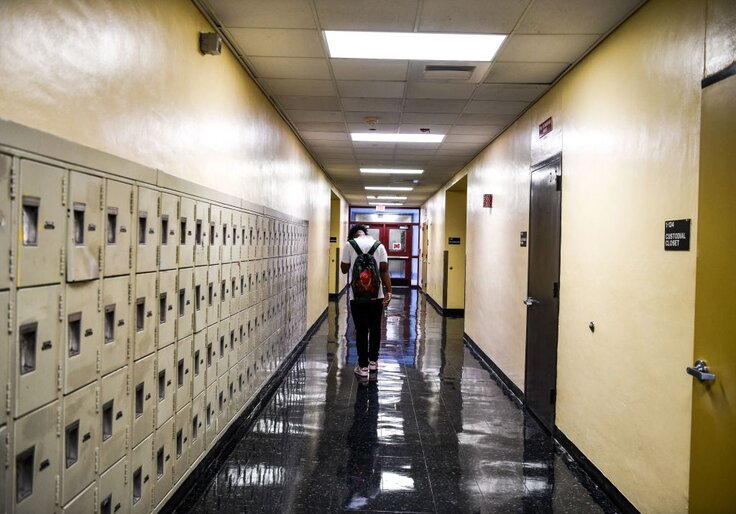The Biden administration says disciplinary action from schools, such as suspending students for truancy, has racist motivations that must be confronted.
President Joe Biden's Education and Justice Departments on Wednesday released their "Resource on Confronting Racial Discrimination in Student Discipline," which contends that persistent racism clouds school disciplinary systems. That racism is exhibited in school disciplinary codes and actions as early as preschool, according to the memo, and is evident when schools discipline minority students for excessive absences or for failing to follow the dress code, among other examples. "Discrimination in student discipline forecloses opportunities for students, pushing them out of the classroom and diverting them from a path to success in school and beyond," the memo states. "Significant disparities by race—beginning as early as preschool—have persisted in the application of student discipline in schools."
The Justice Department lays out actions it has already taken to correct course, including pushing one Maryland school district to promise to no longer suspend students for truancy. The department says frequently skipping school is not a "severe" misbehavior and asks schools to instead opt for "restorative practices" such as "conflict resolution" and "reflective writing assignments."
Biden administration officials have a long history of accusing America's public educators of racism. In 2021, liberal education policy expert Kayla Patrick blamed "whiteness" for creating a "racist" student disciplinary system in public schools across the country. Just months later, Biden's Education Department tapped Patrick to run its Office of Planning, Evaluation, and Policy Development.
"In this country, nearly 80 percent of the teachers are white. And sometimes their mindsets are based solely in whiteness," Patrick said. "So that means when they come into school, they have predisposed mindsets about who black children are, what they need to wear, and how they need to behave. And so instead of celebrating their identities and cultures, schools often erase them."
The Education and Justice Departments did not return requests for comment.
The administration's Wednesday memo outlined numerous investigations federal civil rights officials undertook to correct the racism supposedly baked into public schools' disciplinary systems. It also laid out the outcomes of those investigations, each of which involved changes to school disciplinary policies or procedures.
In one case originating in a Maryland school district, black students were allegedly "overrepresented" in misbehavior incidents that included school resource officers. Following pressure from the Justice Department, the district agreed to refrain from using "exclusionary discipline" to address truancy and other misconduct, instead opting for "behavioral support plans, reflective writing assignments, conflict resolution, and restorative practices." The district also agreed to allow truant students to make up schoolwork, rather than giving those students failing grades.
In another case, the Justice Department found that black students in a North Carolina district were "overrepresented in discipline for subjective offense categories" and unfairly suspended for repeated "lower-level infractions." As a result, the department pushed the district to provide "implicit bias training for district staff," agree to "community involvement in district development of student discipline practices," and implement "alternatives to suspensions."
The memo is seemingly at odds with other federal government findings on school discipline. Last year, research from the National Institutes of Health indicated that, "regardless of race," students in lower socio-economic classes "received more childcare provider behavioral complaints" than white and minority children of higher socio-economic status. Still, the Biden administration's Wednesday memo did not discuss the impacts economic factors have on student discipline rates.
